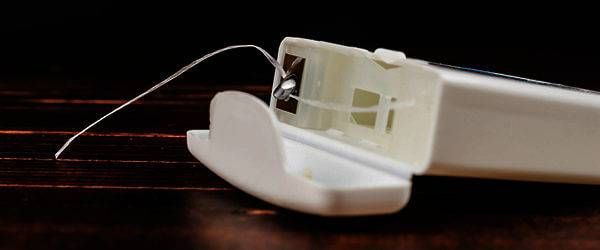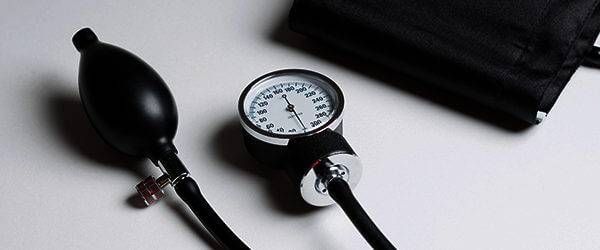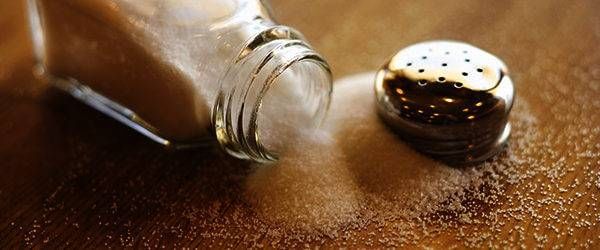7 Daily Practices That Are Bad for Your Heart
Protect your ticker by ditching these harmful habits
(This article appeared previously on Grandparents.com.)
Everyone knows by now that smokers have more heart attacks than non-smokers. And that being overweight puts you at greater risk. (Two-thirds of Americans are overweight, according to the National Institutes of Health.) But there are other practices that are bad for your heart. Check out this list of heart-risky behaviors to see if you need to kick these habits:

1: You’re Set In Your (TV) Ways
After a long day of work or whatever else you do, you settle down to watch some TV. No harm in that, right? Wrong. “Sitting is the new smoking in terms of your heart,” says Dr. Tamara Horwich, co-director of the Barbra Streisand Women’s Heart Health Program and director of Cardiac Rehabilitation at UCLA Medical Center. “Even if you’re going to the gym every day, you’re not making up for it when you’re sitting on the couch doing nothing. It’s metabolically unhealthy."
You don’t have to give up TV, but consider combining your watching time with your time on a treadmill. Or, at the very least, be sure to get up periodically to stretch, do jumping jacks, or just take a walk around the house. “The more sedentary you are, the higher your risk for heart disease,” Horwich says.

2: Seeing Red (Meat)
“We are getting more and more information that says red meat should be banished from the human diet,” Horwich says. “Particularly processed red meat — bacon, ham. But even steak.” High consumption of these meats is linked not only to heart disease but to cancer and Alzheimer’s disease, as well. Another concern is that meat raises blood levels of TMAO, an organic compound associated with heart attacks. Another theory: Meat eaters may be harming themselves simply by eating fewer servings of green vegetables, the optimum healthy food for heart health.
To protect your heart, eat a more plant-based diet, Horwich says. Follow the Mediterranean Diet or aim to fill your plate two-thirds with vegetables and one-third lean protein such as chicken or fish.
What if you love red meat? Have it once a week, says Dr. Jen Haythe, assistant clinical professor of cardiology at Columbia Medical School. And pay attention to how it’s prepared. “If you’re having a steak that’s covered in butter and a high-fat sauce, that’s different than if you’re having a lightly grilled piece of lean steak,” she says.

3: You Sleep Like a (Fussy) Baby
If you are continually sleep deprived, your body is likely in a constant state of stress, producing heart-damaging hormones that increase the risk of heart attack, Haythe says.
A 2011 study by British researchers found that people over the age of 45 who got fewer than six hours of sleep per night had twice the risk of heart attack compared with a similar group who slept between six and eight hours.
Seven hours of sleep a night is the “sweet spot” for cardiovascular health, Horwich says. Many of us get less than that each night — and we might not even realize it, thanks to nighttime waking caused by snoring or short stoppages in breathing known as sleep apnea. If you spend seven or eight hours in bed, but you wake up feeling exhausted, consult your doctor.
To ensure a healthy heart, it’s not only about the time you spend asleep — it’s also about the quality of that sleep, Horwich says.

4: You Fail to Get Your Teeth Into It
Let’s face it: Most of us forget to floss even though our dentist has been telling us for years that it will save our gums. Will your behavior change if you know that flossing may save your heart?
Researchers have found a link between flossing and heart health, but that link is not easily explained, Haythe and Horwich say. Still people who floss tend to have healthier hearts.
It may be that flossing reduces inflammation in your gums, and inflammation in your gums may lead to inflammation throughout your body, which could be a risk for heart attack.
“We don’t know if poor oral hygiene means that you’ve got other unhealthy practices, and that’s why you’re at risk for heart attack,” Haythe says. Horwich agrees, adding maybe people who floss just take better care of their whole bodies.

5: You Don't Catch the Warning Signs
Do you know your blood pressure? How about your cholesterol levels? You should know these things because if you’re unaware, you may be a walking time bomb, just waiting for a heart attack to happen.
“High blood pressure is a major risk factor for heart attack,” says Haythe. “It’s known as the silent killer because it may not register any symptoms. You need to have this checked regularly and be aware of your risks.”
Similarly, your cholesterol will not produce symptoms. “You can be a fit runner with a cholesterol of above 300,” Haythe says. “You have to have it checked.”
If you receive a high blood pressure reading once, have it checked two or three times in the next month to see if it’s a fluke or if it represents a trend. If it remains high, your doctor will probably recommend blood pressure medication. If the first one she recommends produces uncomfortable side effects, don’t just stop taking it. Let your doctor know, because other medications are available.
As for cholesterol, Horwich was unequivocal. “There are more studies on this than can be imagined. The data is incontrovertible when it comes statins (the medicines prescribed for high cholesterol). These will make you less likely to have a heart attack.”

6: You’re Under A Salt (Shaker)
Salt is not going to give you heart problems, Haythe says. So if you’re healthy, with low blood pressure and good cholesterol numbers, you can liberally shake away on your favorite foods (bearing in mind that The American Heart Association recommends no more than 1,500 milligrams a day).
But if you have high blood pressure (or a borderline reading) or a known heart problem, such as heart failure, salt is the enemy and you should avoid it. Salt can cause water retention in the body, which aggravates blood pressure and can make already swollen legs (from heart failure) even more swollen.
Instead of salt, use fresh herbs to season your food, and save salt for very rare occasions.

7: You See the Glass Half Empty
Your emotions are tied to your heart. If you are quick to anger or see the world as a threatening place, you may be putting your heart at risk. “We call it SAD,” says Horwich, “Stress, Anxiety and Depression. And we are particularly seeing stress more and more being recognized as a risk for cardiovascular disease.”
This trifecta of emotions can release hormones in the body that are damaging to your heart. Cortisol and epinephrine are two such hormones that, along with others, raise blood pressure and blood sugars in the body, thereby threatening the heart. Another reason stressed-out people are vulnerable to heart disease is most likely because “they don’t eat well, don’t sleep well, and don’t exercise,” Horwich says.
If you feel stressed, anxious, or depressed, be sure to get exercise, get out and socialize, or consider seeing a mental health professional who may prescribe medication or help you talk through your emotions. You’ll not only feel better, but your heart will, too.

And One Thing You Can Do to Help Your Heart
Have another cup of coffee! If you’re feeling like you have to give up all of your fun habits to protect your heart’s health, think again. One routine most of us love seems to be quite good for our hearts: A cup of coffee (or two or three).
A study from Harvard says that people who drink between three and nine cups of coffee a day had a lower risk of dying from a heart attack than those who did not. Researchers say the association needs to be studied more closely, but for the moment, coffee seems like a heart-protective drink.
“We still don’t know this for sure,” says Haythe. “Were the people in the study group more health conscious than the general population? Were they working out? It’s a retrospective study, so it’s hard to know, but I generally tell my patients to go ahead and enjoy their coffee.”
Grandparents.com is a lifestyle website, social media community & peer group that unites & connects America's 70 million Grandparents to the best information and premier products & services just for them. Our goal is to promote well-being and give timely information on what really matters to you, from health and money to family and relationships to travel and retirement.

